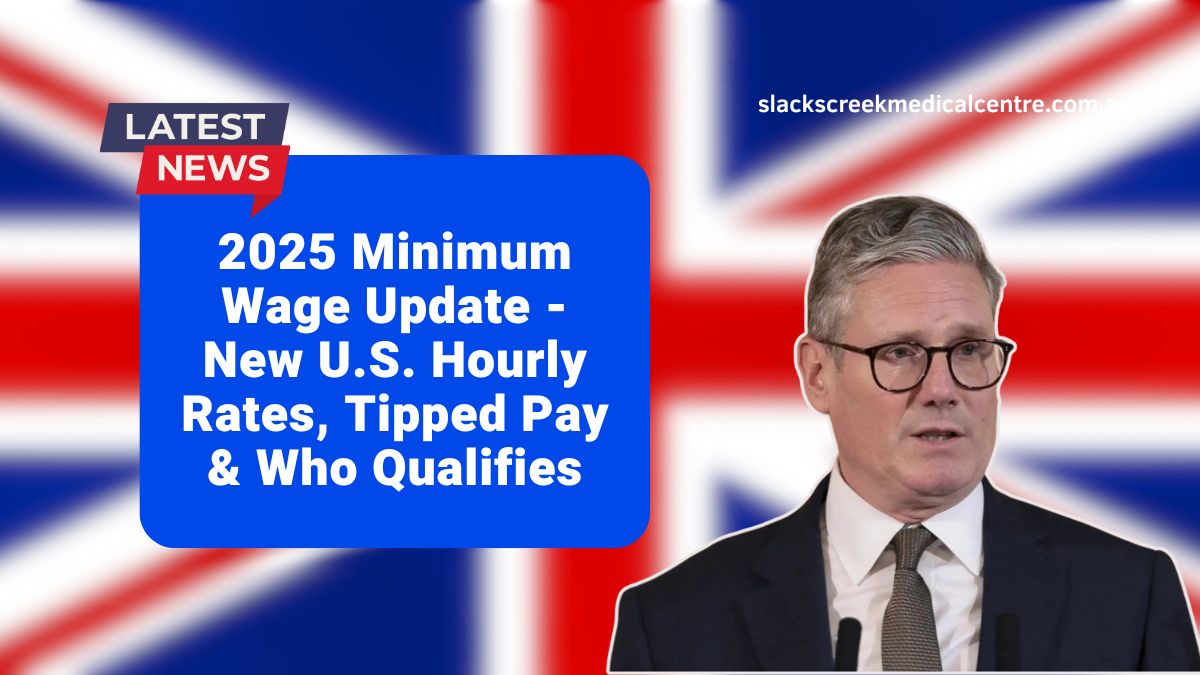As of 2025, millions of American workers are impacted by updated minimum wage laws, with various states increasing hourly rates to keep pace with inflation and cost-of-living changes.
While the federal minimum wage remains unchanged, many states have taken independent steps to offer higher wages and expanded protections, especially for tipped workers.
Federal Minimum Wage: What’s Staying the Same?
The federal minimum wage in the United States remains at $7.25 per hour, a rate unchanged since 2009. However, due to growing economic pressures and state-led initiatives, many workers are now earning more depending on where they live.
- Standard Federal Minimum Wage: $7.25 per hour
- Federal Tipped Minimum Wage: $2.13 per hour (employers must ensure total pay with tips reaches at least $7.25/hour)
- Youth Minimum Wage: $4.25/hour for employees under 20 during the first 90 days of employment
State-by-State Minimum Wage Increases (2025)
States continue to lead the way in raising minimum wages. Here are updated hourly rates in select states for 2025:
| State | Minimum Wage (2025) | Tipped Wage |
|---|---|---|
| California | $16.50 | $16.50 (no tip credit) |
| Washington | $16.66 | $16.66 (no tip credit) |
| New York (NYC) | $16.50 | $11.00 |
| Florida | $14.00 | $11.00 |
| Illinois | $15.00 | $9.00 |
| Michigan | $12.48 | $4.74 |
| Arizona | $14.70 | $11.70 |
| Texas | $7.25 | $2.13 |
| Pennsylvania | $7.25 | $2.83 |
Note: Some states prohibit the use of tip credits, requiring employers to pay the full minimum wage regardless of tips.
Tipped Employee Wage Guidelines
Tipped employees are those who regularly earn over $30/month in tips. While employers are permitted to pay $2.13/hour as a base wage, total compensation (wage + tips) must equal at least the applicable minimum wage.
Key Rules for Employers:
- Ensure total hourly earnings (including tips) equal or exceed the minimum wage.
- Maintain clear records of hours, tips, and wages paid.
- Make up any shortfall if an employee’s tips are insufficient to meet the required wage threshold.
In states like California and Washington, employers are not allowed to apply a tip credit. Tipped workers must be paid the full state minimum wage before tips.
Who Qualifies for Minimum Wage?
Most employees are covered by the Fair Labor Standards Act (FLSA), which ensures the right to minimum wage and overtime pay. However, there are limited exemptions, including:
- Independent contractors
- Full-time students in certain programs
- Certain agricultural and seasonal workers
- Casual babysitters or companions for the elderly
Employers must evaluate each worker’s classification carefully to remain compliant.
Impact of State Policies
Workers in states like California, Washington, and New York are seeing the highest minimum wages in the country, reflecting the higher cost of living in those regions. Many states also have automatic inflation adjustments in place, meaning wages will continue to rise annually based on consumer prices or other economic factors.
Meanwhile, states that follow the federal baseline may see pressure to adjust their rates in the coming years, especially as wage gaps widen between neighboring regions.
Why This Update Matters
With rising costs in housing, food, and transportation, minimum wage increases can significantly improve the standard of living for low-income workers. Additionally, increasing tipped wages helps stabilize income for service workers who face inconsistent tips.
Businesses are encouraged to stay updated on wage law changes to avoid penalties and ensure fair labor practices.
The 2025 U.S. minimum wage landscape shows a continued shift toward state-driven solutions to support low-wage earners. While the federal wage remains at $7.25/hour, many states now exceed that amount, offering workers a better path to economic security.
Tipped employees also benefit from clearer wage protections, especially in states that prohibit tip credits. Employers and workers alike should stay informed of their state’s latest wage requirements to ensure compliance and fair pay.
FAQs
Can employers still pay $2.13 per hour to tipped workers?
Yes, under federal law—but only if tips bring total hourly pay to at least $7.25/hour. Some states require full minimum wage before tips.
What happens if my tips don’t add up to minimum wage?
Your employer is legally required to make up the difference so that you earn at least the applicable minimum wage.
Do all states follow the federal minimum wage?
No. Many states have set higher minimum wage rates, and employers must pay the higher of the state or federal rate.

